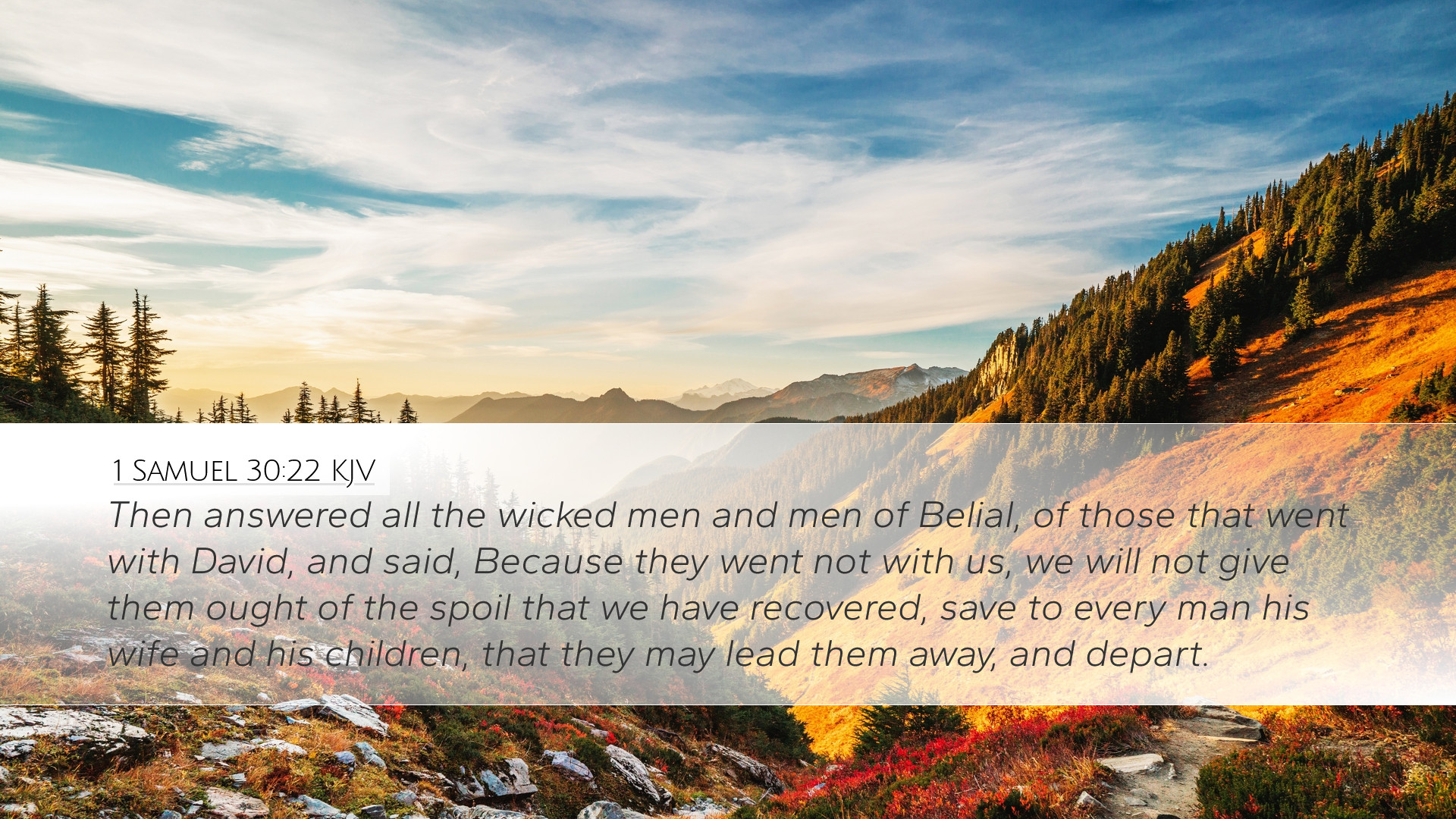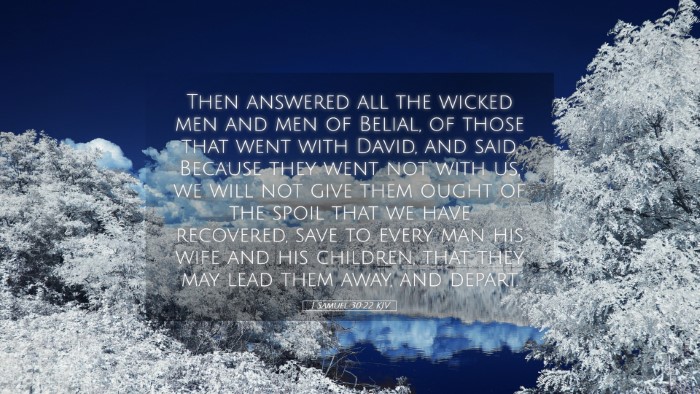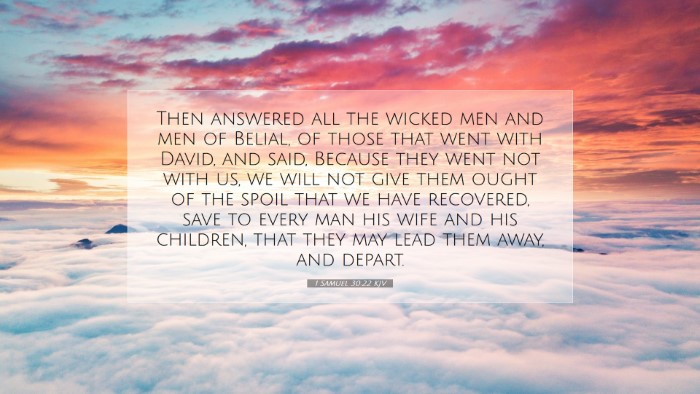Commentary on 1 Samuel 30:22
Verse Reference: 1 Samuel 30:22
In this pivotal verse of the Old Testament, we confront the crucial themes of leadership, loyalty, and justice within the narrative of David's rise to kingship. This passage comes at a time when David and his men have returned to Ziklag to find it ransacked and their families taken captive by the Amalekites. The context is filled with the emotional weight of loss, desperation, and the need for divine intervention.
Historical Context
Understanding the historical backdrop is critical for interpreting this verse. David, previously anointed by Samuel, had been living as a fugitive, seeking asylum amongst the Philistines. He was in a precarious position, both socially and politically. After the devastation of Ziklag, a crucial turning point arises as David's men, distraught and angry, contemplated stoning him. This highlights the intense pressure of leadership during crises.
Key Themes and Insights
- Loyalty and Betrayal: The actions of David's men post-disaster reveal a significant strain on loyalties. Some men, despite their shared struggles, felt entitled to a greater share of the spoils of war, turning against their leader out of grief and desperation.
- Justice and Fairness: David’s response to the dissenters illustrates a biblical model of justice where each soldier is entitled to partake in the rewards of victory, regardless of their initial participation. This anticipates the later legal frameworks established in the Mosaic law regarding distributions of spoil.
- Leadership Under Duress: David’s leadership is characterized by his commitment to equity and his reliance on divine guidance. His choices reflect the essence of godly leadership, which marries compassion with accountability.
Commentary Insights
Matthew Henry
Matthew Henry provides a profound exploration of this verse, emphasizing the principle that "the spoil is shared according to the effort offered." He interprets the reaction of David’s men as a reflection of human nature; in times of emotional turmoil, individuals wrestle with jealousy and a desire for unfair advantages. Henry asserts that David's equitable distribution of the spoils serves as a model for righteous leadership.
Albert Barnes
Albert Barnes expands on the socio-political implications of this event. He highlights David's wisdom in confronting discontent among his followers. By ensuring that all who participated, regardless of their physical involvement, share in the victory, Barnes underlines the themes of unity and collective responsibility. Barnes notes that this event sets a precedent for future governance in Israel, establishing David as a shepherd to his people.
Adam Clarke
Adam Clarke offers insight into the theological significance of this narrative. He observes that God’s providence enabled David to recover not just physical possessions but also reaffirmed the emotional and spiritual strength of his leadership. Clarke elucidates that God's guidance throughout this ordeal emphasizes the importance of divine favor and direction in moments of adversity. He argues that this chapter underlines the necessity of seeking divine intervention amidst human frailty.
Theological Reflections
This passage invites readers to reflect on broader theological themes, such as divine justice and the nature of community. The sharing of spoils can be seen as a foreshadowing of the communal nature of the Church—where members share in both the trials and triumphs of faith. David’s actions also prefigure Christ’s leadership, where grace exceeds merit and all are called to partake in the divine victory offered through faith.
Application for Today’s Leaders
The relevance of 1 Samuel 30:22 extends far beyond its historical setting; modern leaders—whether in the church, community, or broader societal contexts—can draw valuable lessons concerning equity, fairness, and the strength of collective unity. As leaders navigate the complexities of interpersonal relations during crises, the importance of cultivating a spirit of inclusivity and shared accountability is paramount.
Conclusion
In conclusion, 1 Samuel 30:22 serves as a rich tapestry of insight into the human condition, leadership ethics, and divine favor. The interplay of justice, loyalty, and divine guidance encapsulated in this verse invites deep scholarly reflection and application for contemporary leadership roles. As one studies this passage through the lens of historical and theological perspectives, the enduring truths emerge, emphasizing the significance of equitable treatment and compassionate leadership across generations.


